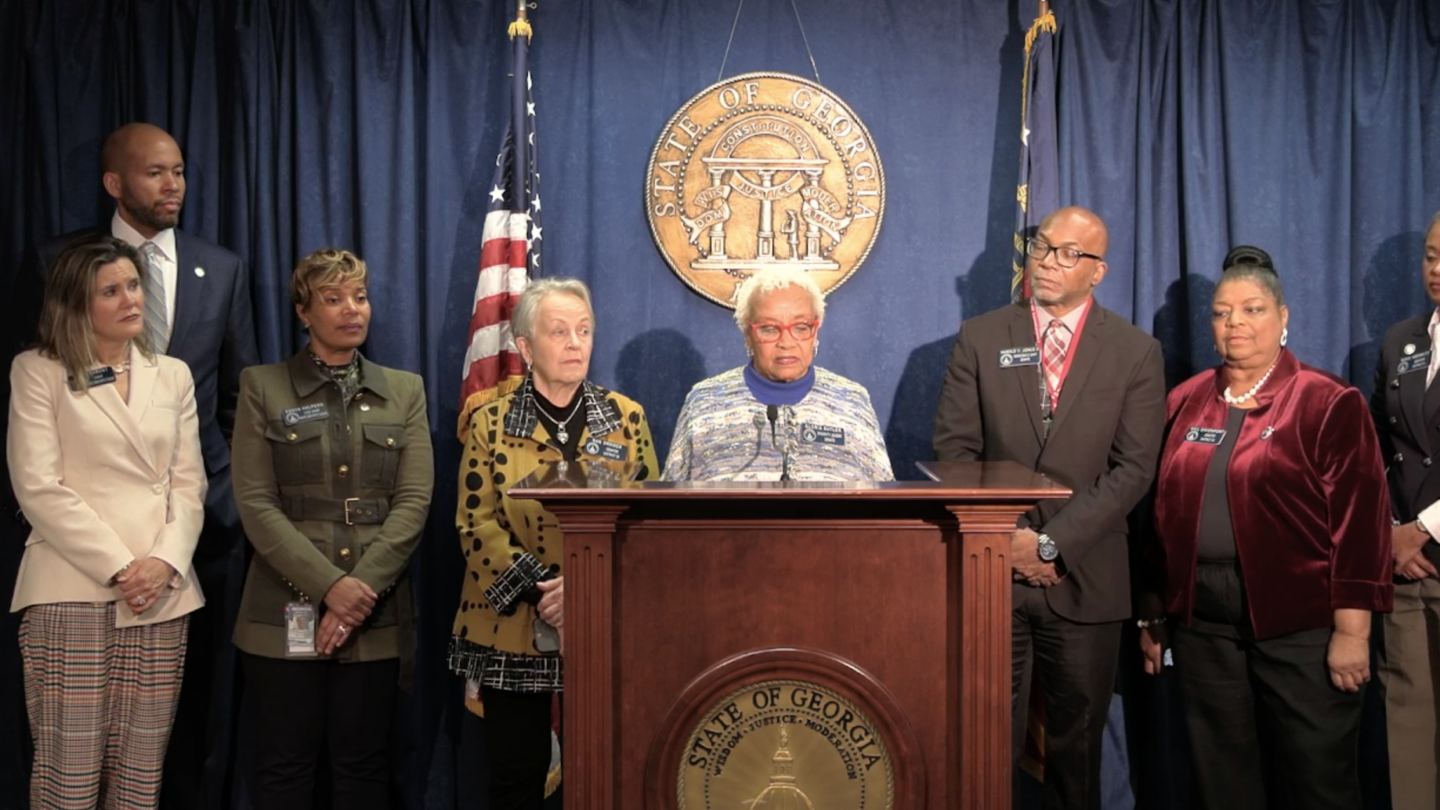Showdown on Medicaid expansion heats up as Georgia legislative session winds down

Democratic state lawmakers say they’ll continue fighting to expand Medicaid in Georgia after a majority Republican committee rejected the latest proposal for expansion with a week left in the General Assembly’s legislative session.
The vote followed almost two hours of Senate committee debate on a House bill, the Peach Care Plus Act of 2024.
The measure would clear the way for Georgia to fully expand Medicaid to cover uninsured adults who earn up to 138% of the federal poverty line, $20,783 per year for a single person.
Georgia could also tap more than a billion dollars in additional federal funding to help offset costs associated with the rollout of the expansion program.
Senate Minority Leader Gloria Butler called the bill’s narrow rejection by the Senate Regulated Industries Committee “disappointing.”
“We have hundreds of thousands of Georgians without health insurance. Our rural hospitals are shutting down, and we are leaving $1.2 billion sitting in Washington, when that money could be making the lives of Georgians so much better,” Butler said. “And for what?”
An analysis from KFF, an independent news source for health policy research and polling, projects that full Medicaid expansion in Georgia could cover more than 430,000 people through a model similar to one in Arkansas.
Under the plan, Georgia would purchase private health insurance, potentially lowering premiums and boosting payments to medical providers.
Dr. Joe Thompson is president and CEO of the Arkansas Center for Health Improvement and a professor of Pediatrics at the University of Arkansas for Medical Sciences. He also previously served as Arkansas Surgeon General under Republican Gov. Mike Huckabee and Democratic Gov. Mike Beebe.
“Effectively, what that did is it put a big guaranteed purchaser of individual coverage Medicaid in the individual marketplace. So it stabilized those risk pools. It ended up resulting in a reduction in insurance premiums. And because it was 200,000 new lives [being covered], it attracted new competition into the marketplace with additional insurance companies coming into the state,” Thompson said.
The Georgia bill’s Democratic sponsor, Sen. David Lucas from Macon, said zip code should not determine Georgians’ ability to access medical care.
“And that’s what’s happening in Georgia,” he said. “People choose to live where they want to live, but they ought to be able to get health care. We got rural hospitals that are operating on 4 to 5 days’ cash, which means they might close when we get out of session. This helps pay for the uncompensated calls that these hospitals are going through. And of course, the big guys, they come out good, too.”
Georgia has 18 hospitals at risk of closure, according to a report from healthcare advisory services firm Chartis.
Lucas’ proposal would cost the state $580 million per year. Federal incentives would pay for the first two years of implementation, according to the nonpartisan Georgia Budget and Policy Institute, a think tank.
Republicans who voted against the bill take issue with its price tag and say Gov. Brian Kemp’s Pathways to Coverage program needs more time to grow.
Pathways offers Medicaid insurance to adults with incomes right at the poverty line who complete 80 hours a month of work, education or community service.
Since last summer, only around 3,500 people have signed up to participate, a fraction of the 100,000 people the Kemp administration had forecast.
A report this week from KFF found that the Pathways program has, so far, cost Georgia taxpayers at least $26 million.
Committee Chair Bill Cowsert said he wasn’t closing the door on discussions for a possible full Medicaid expansion.
“I don’t want to quell the conversation on it in any way. I think it’s all very healthy,” said Cowsert.
He said he hoped a separate proposal under consideration this year that would loosen Georgia’s certificate-of-need (CON) regulations over where new healthcare facilities can operate would also further discussions on Medicaid expansion.
“And, I believe that a CON bill that we have passed, that hopefully will be resolved here in the next few days, by setting up that commission keeps this dialog moving,” he said, “while at the same time giving the Pathways plan a chance to either be approved or officially rejected.”
Butler and other House and Senate Democrats said earlier in the session that they would not vote to pass certificate-of-need changes without Medicaid expansion.
Laura Colbert, executive director at the nonpartisan policy group Georgians for a Healthy Future, spoke before the committee in favor of Peach Care Plus.
“Unexpected medical situations can be a big hit, you know, for some of us we can handle an unexpected $500 or $800 medical bill, but these are folks making $20,000 a year. And so that’s a really big hit,” Colbert said.
“So, by providing them with coverage they’re financially protected as well as enabled to go to a physician, hopefully before an emergency happens.”








